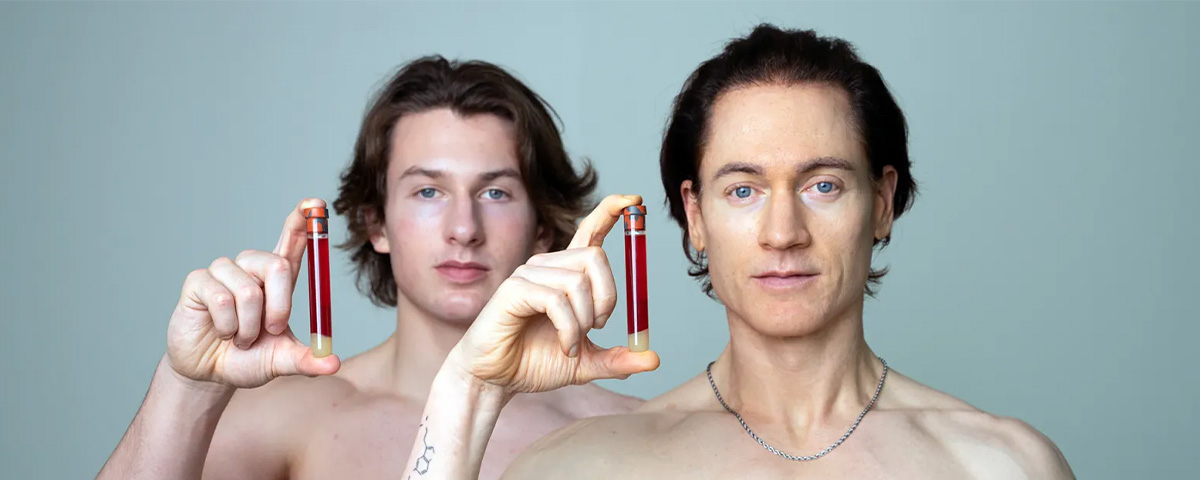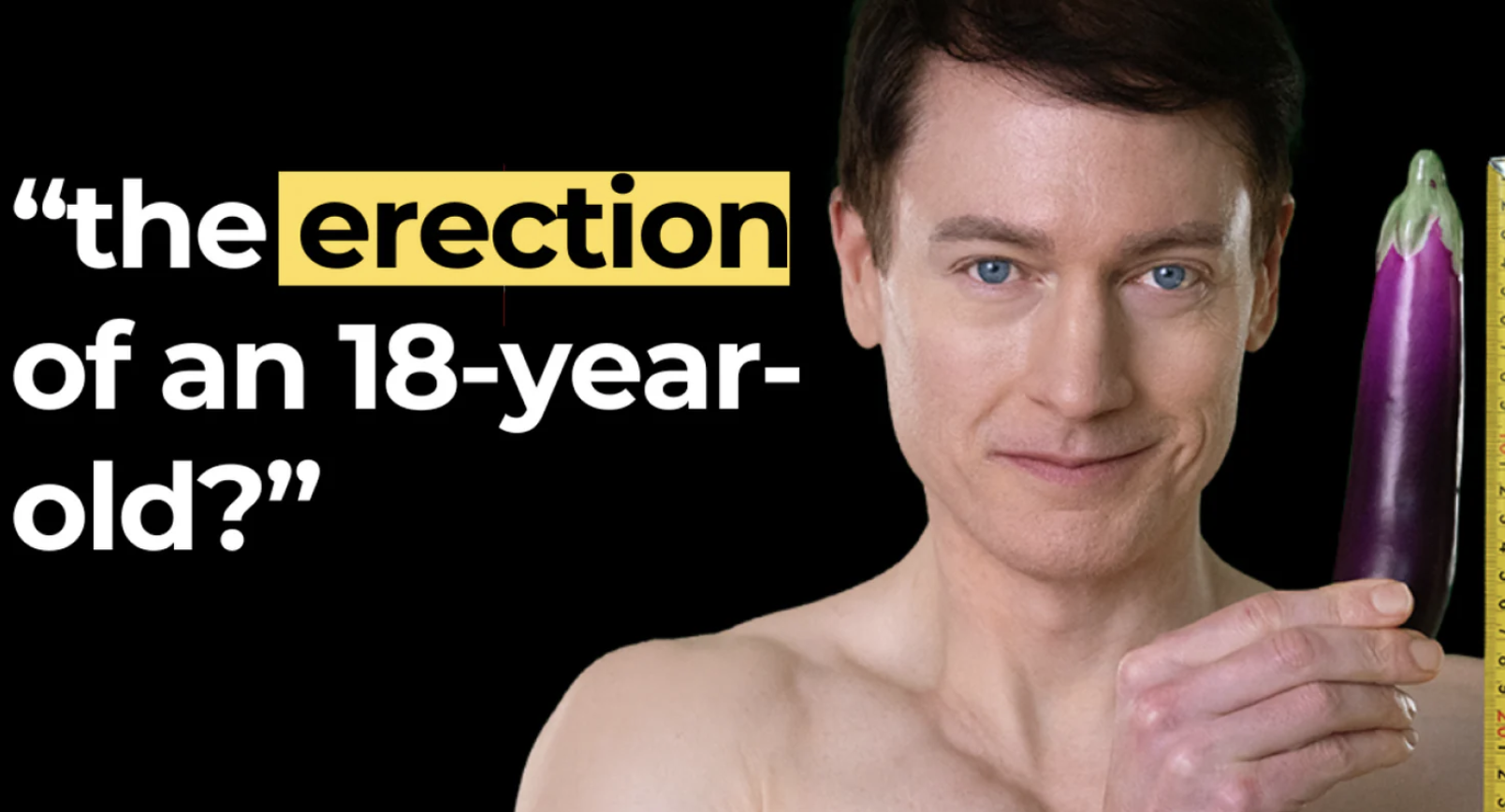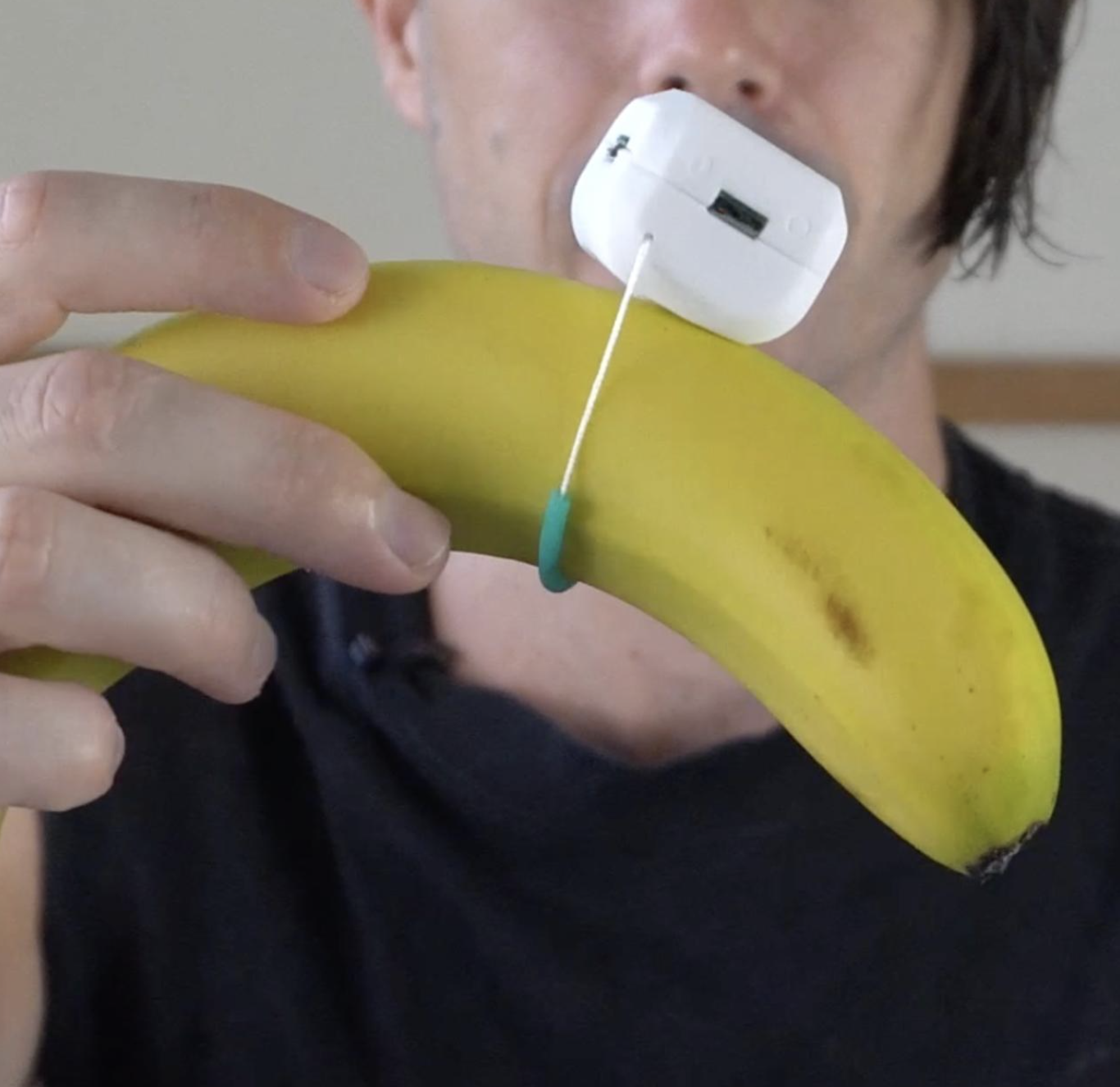
Like the rest of our mortal flesh, dicks age and die. As time marches on, they start to droop and sag, with even the sturdiest of cocks eventually struggling to get and stay hard, and sperm counts slowly dwindling.
But that, of course, was before Bryan Johnson. The self-proclaimed biohacker has built an entire brand on his weird, over-the-top dedication to staying youthful, as shown in his Netflix documentary Don’t Die: The Man Who Wants To Live Forever.
“When I started, people were looking at me like this ‘eccentric, vampire billionaire tech bro drinking his son’s blood,’” he explained in a recent interview with The Guardian regarding his bio-hacking endeavors.
Johnson actually sees himself as a “professional rejuvenation athlete” hell-bent on de-aging every part of his body — including his junk.

Johnson’s tips on “de-aging your penis” are handily collated in a blog post, alongside a photo of his smoothed-out, smiling face clutching an eggplant, with the tagline: “The erection of an 18-year-old?” While not billed as such, the post is essentially an ad for a creepy-looking product called Adam, “the world’s first night-time erection tracker.”
Adam is a two-pronged gadget: There’s a wearable sensor to be donned before bed as well as an app that tracks your nocturnal boners. It’s not cheap, either — the contraption retails for $200.

It’s fair to be skeptical of a blog post that opens with the wildly fearmongering line: “Men — if you’re not having robust boners at night, you’re 70 percent more likely to die prematurely.” So, to get some clarity on Johnson’s claims, I reached out to board-certified urologist and sexual health expert Dr. Joshua Gonzalez.
First of all: de-aging your dick. Is this a real thing? “Penis de-aging isn’t a medical term,” he explained, “but is used to describe practices meant to undo or prevent many of the issues that occur as we age that have a detrimental effect on the size and function of the penis. As we get older, our hormones decline and our circulatory system starts to deteriorate, both of which can negatively impact penile health.”
As for nocturnal erections, Gonzalez describes them as “a litmus test for cardiovascular integrity. This system declines with age, which leads to less morning erections.” A lack of nighttime boners and erectile dysfunction can sometimes be an early sign of undiagnosed cardiovascular problems. “Several studies have shown that men with erectile dysfunction have a 25 to 50 percent higher risk of cardiovascular events, stroke or all-cause mortality,” he continues. “But let’s be clear: lack of or decreased nocturnal erections itself doesn’t cause early death. It’s a symptom, not a driver.”
In his guide, Johnson outlines a rigorous program of semen analysis, urine flow tests and prostate health checks designed to de-age his dick. Although Gonzalez says it’s worth keeping an eye on our nocturnal erections, “does that mean you have to purchase a ‘nocturnal erection tracker’ [e.g., Adam]? Not necessarily. Just pay attention to your body. If you notice nocturnal erections are starting to decline or disappear completely, then discuss the idea with a healthcare provider. This is especially important if you find that your erections are also a problem when you’re having sex.”
It’s also worth noting that age isn't the only factor impacting penile health; again, Gonzalez cites hormonal factors and cardiovascular function as two others. Although erectile dysfunction grows more common as we age, “there are young men who can have poor erections, and older men who have great erectile function,” he says.
Similarly, some of Johnson’s advice — getting regular prostate checks, for example — are just good health practice more broadly, but there is no hard-and-fast guarantee that young guys have healthier dicks.
— Bryan Johnson (@bryan_johnson) April 23, 2025
“My biggest advice is to seek help early if you notice a decline in the frequency, reliability and/or spontaneity of your erections,” Gonzalez concludes, as well as reinforcing the importance of a “heart healthy lifestyle” with a balanced diet, regular exercise and good sleep hygiene.
In other words, you don’t need to cum in a tube once a week and ship it off to some lab, or strap your junk into an expensive wearable sensor before bed. After all, says Gonzalez, it’s all much, much simpler than that: “What’s good for your heart will be good for your penis.”






0 Comments